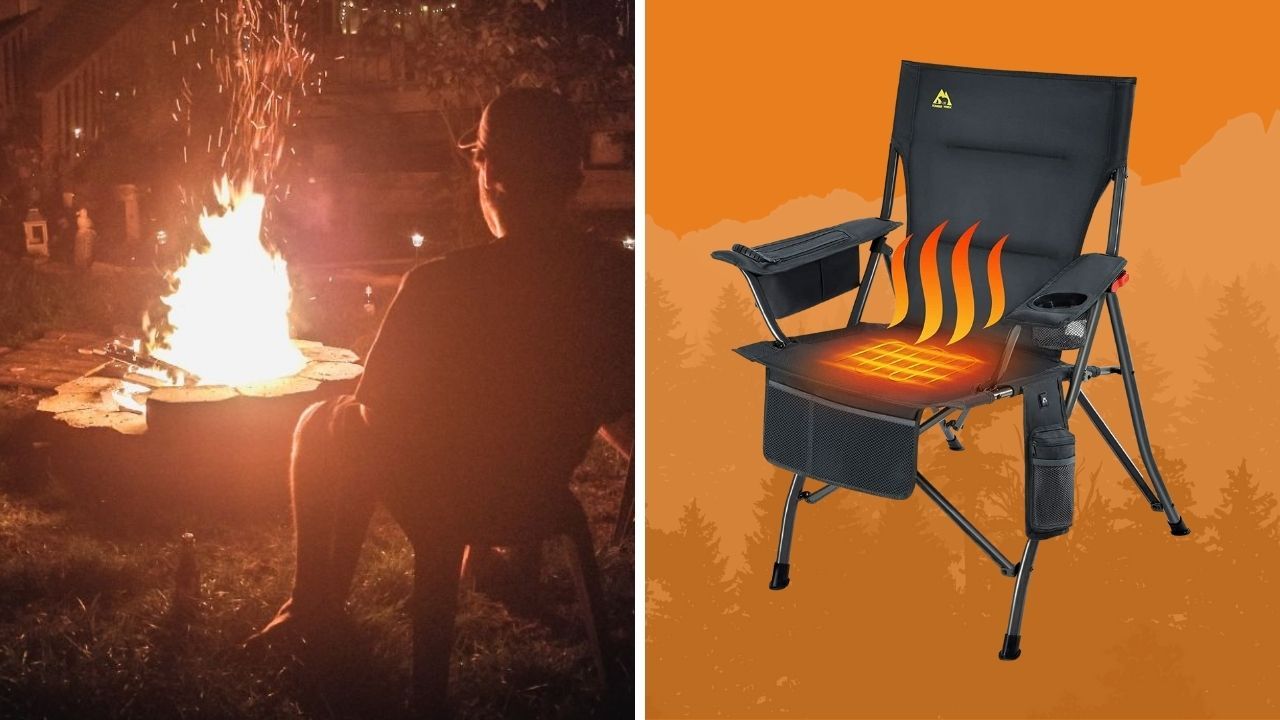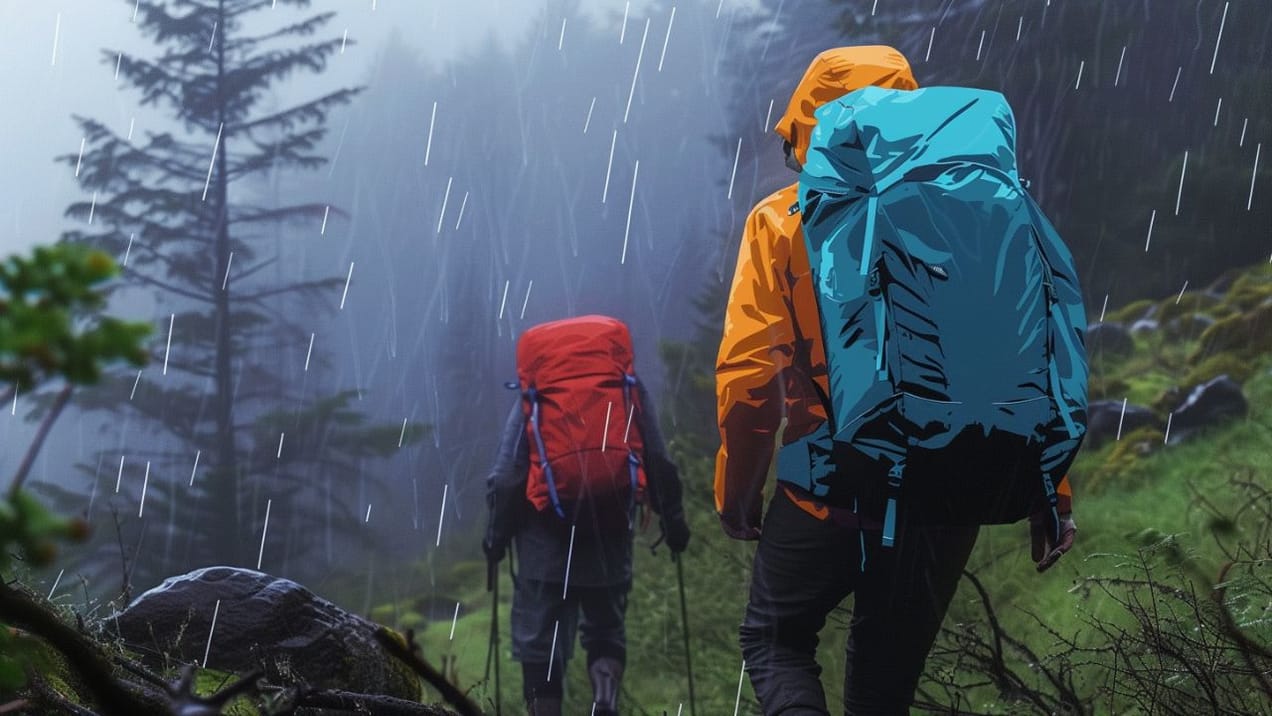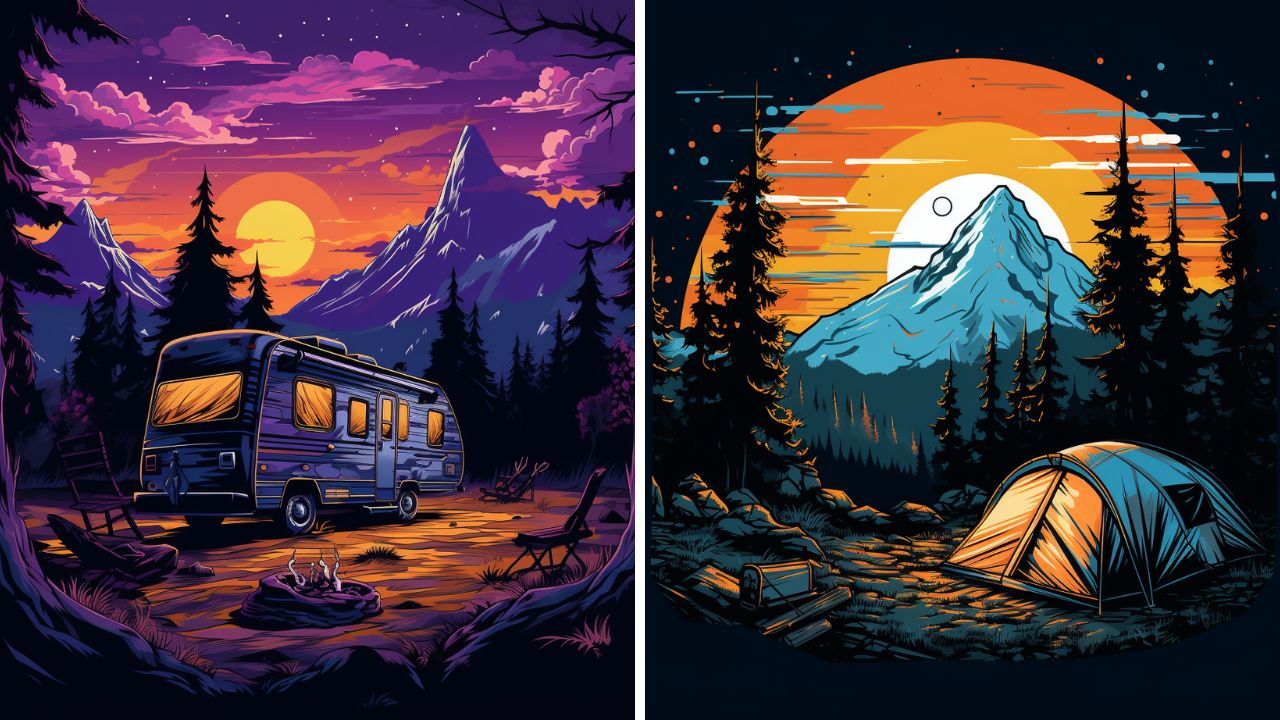
RV vs Tent Camping | Under the Stars or On Wheels?
Unsure about RV vs Tent Camping? Discover the pros and cons of both to find your perfect outdoor escape.
Imagine this: You're waking up to the sound of birds chirping, the smell of fresh pine in the air, and the sight of a beautiful sunrise peeking through the trees.
There's nothing quite like the adventure and tranquility that comes with camping, is there?
But when it comes to planning your outdoor escape, you're faced with a critical decision: RV or tent camping?
Choosing the right approach to camping can significantly impact your experience, depending on your comfort needs, budget, and love for the great outdoors.
Throughout the years, I've experienced a good mix of both camping styles. While me and my wife do tent camp the majority of the time we also enjoy the luxury of RV camping.
I've tent camped in some very remote places in the Sierra Mountains while backpacking and nothing compares to the adventure and connection to Mother Nature.
Yet, I genuinely enjoy both experiences in different ways and find different types of fun in both.
Let's dive into the world of camping and explore the pros and cons of both options!
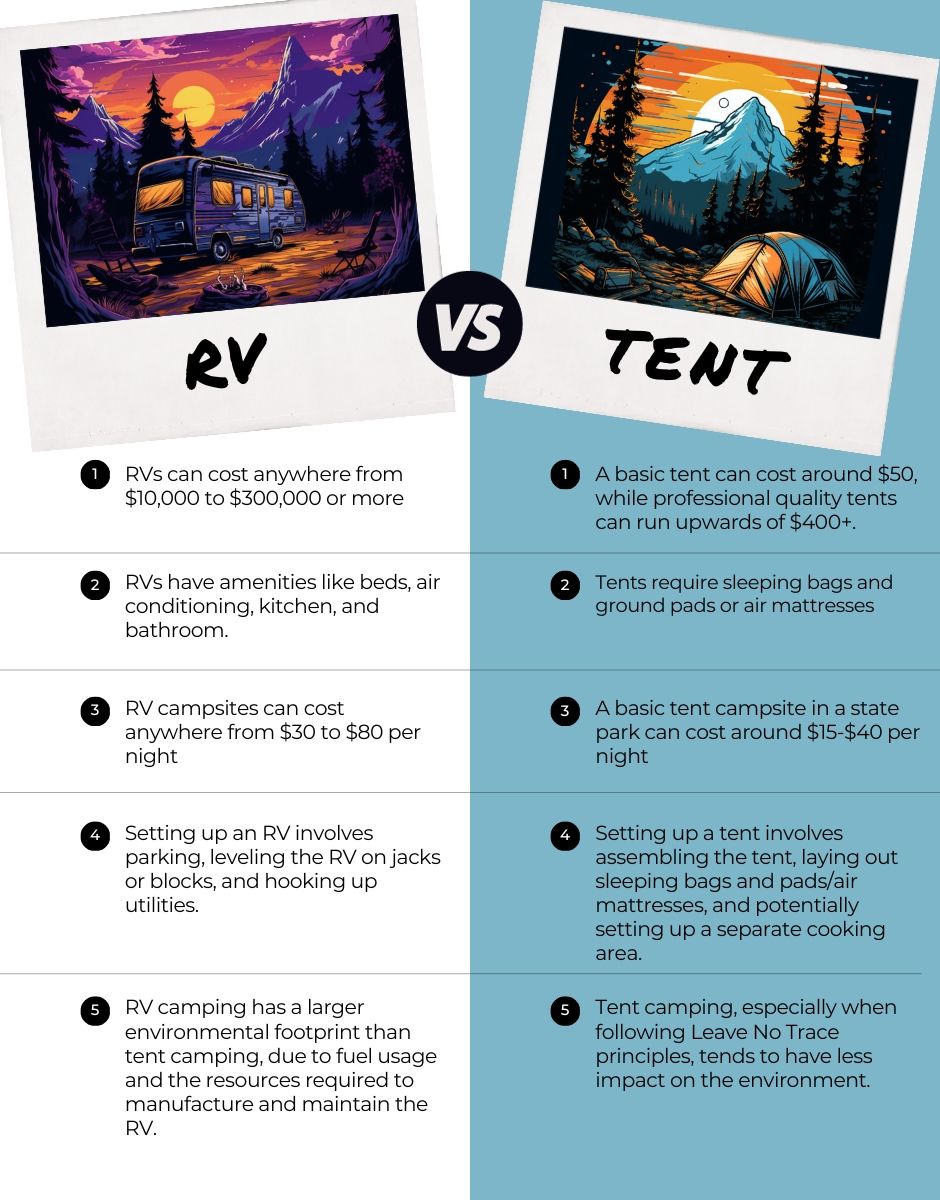
Advantages of Tent Camping
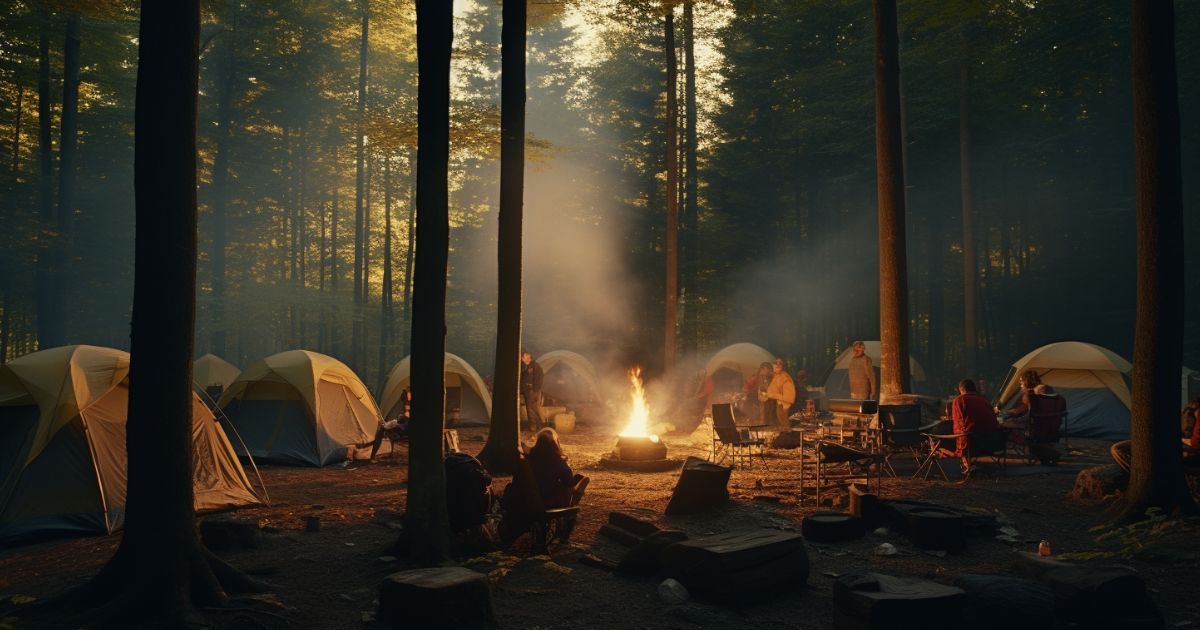
Connection with Nature
There's something incredibly grounding about sleeping under the stars, isn't there?
With tent camping, you’re truly immersing yourself in nature. You'll hear every rustle of leaves, feel the breeze against your tent, and perhaps even spot some wildlife from your sleeping bag.
It’s like you're a part of the great outdoors, rather than just a visitor.
Affordability
If you're camping on a budget, tent camping is a wallet-friendly option.
The cost of a good quality tent, sleeping bag, and cooking gear is often much less than the cost of an RV, not to mention the ongoing maintenance and fuel costs associated with motorhomes.
Simplicity and Back-to-Basics Experience
Tent camping allows you to embrace a simpler way of living, even if it's just for a few days.
This is what I truly love most when tent camping. It's about making fire, cooking simple meals, and finding joy in the basics - think roasting marshmallows over an open flame!
You truly begin to realize you don't need much to survive and be happy, food, water, clothing, shelter, and good company.
Flexibility in Campsite Selection
With a tent, you can camp almost anywhere (within legal boundaries, of course). Whether you want to set up near a riverbank, deep in the woods, or right on the beach, a tent gives you the freedom to choose your perfect spot.
Disadvantages of Tent Camping
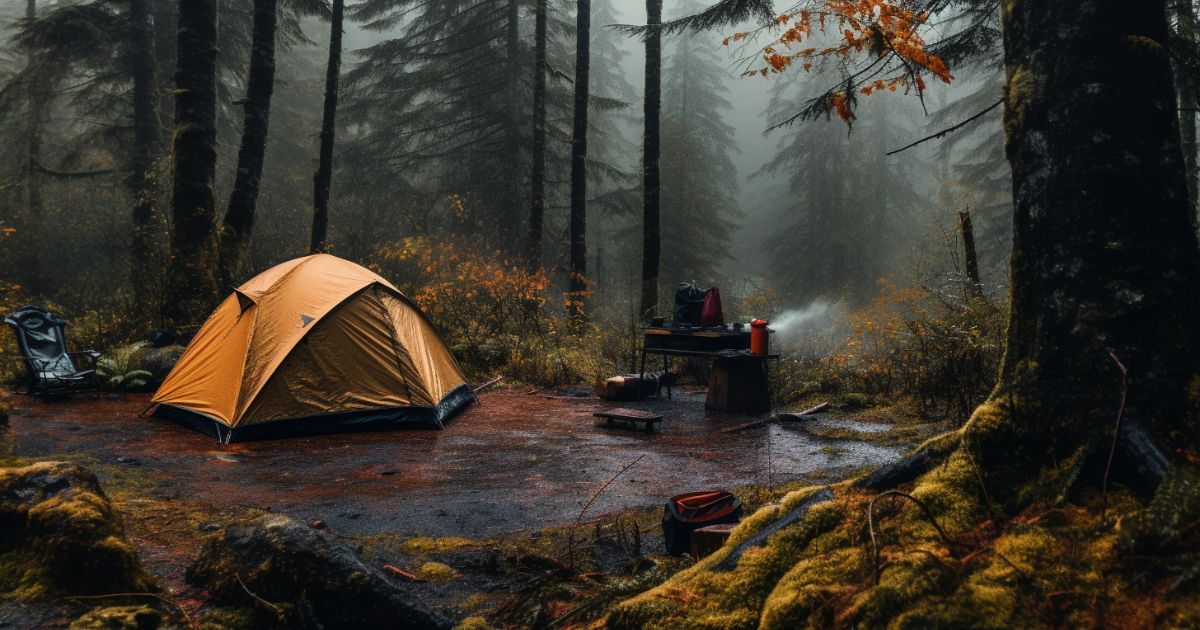
Exposure to Inclement Weather
While falling asleep to the sound of rain can be soothing, a heavy downpour can turn your camping trip into a less-than-enjoyable experience.
Even the best waterproof tents have their limits. Weather can be very unpredictable, especially in the mountains.
Limited Comfort and Climate Control
Though modern tents and sleeping gear offer a reasonable degree of comfort, they can't compare to the beds, heating, and air conditioning found in RVs.
If you're someone who struggles with too-hot summer nights or chilly fall evenings, this could be a drawback.
Setting Up and Packing Down
Setting up a tent can be a bit of a chore, especially if you're new to it. And when it's time to go home? You'll have to reverse the process, ensuring everything is clean and dry before packing it away.
Space Constraints and Storage
Tents are cozy, but they can also feel cramped, especially if you're sharing with others. Plus, there's limited space to securely store your gear, food, and personal items.
So, as you see, tent camping offers an authentic outdoor experience that brings you closer to nature. It's affordable and simple, but it does come with its set of challenges.
The Basics and Benefits of RV Camping
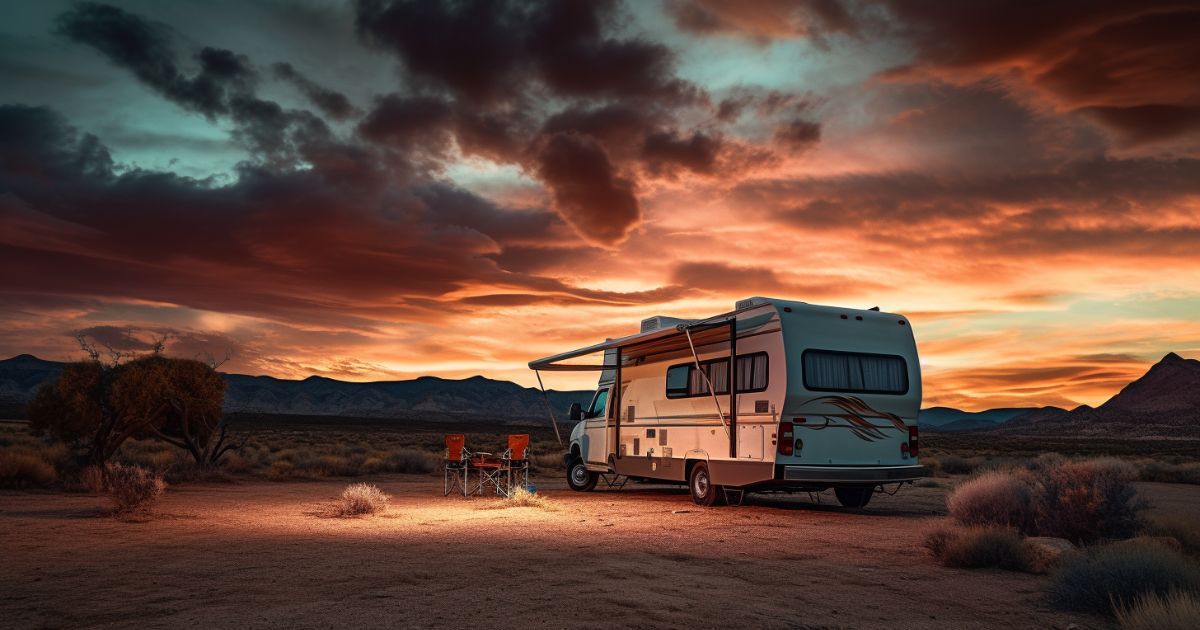
Now, let's shift gears and explore the other side of the camping spectrum – RV camping.
Picture this: You're cruising along the open road with all the comforts of home in tow.
Sounds pretty good, right?
But what exactly does RV camping entail?
Let's find out.
What is RV Camping?
RV stands for Recreational Vehicle, and RV camping means bringing your accommodations with you wherever you go.
It's like having a portable cabin on wheels, offering much more comfort and convenience than traditional camping.
While most tent campers may scoff at it not being "real camping," it's actually a fantastic way to introduce newcomers to the great outdoors. It helps ease any fears they may have about being out in the wild.
Different Types of RVs
From compact camper vans to luxurious Class A motorhomes, there's an RV for every kind of camper out there.
Travel trailers, teardrop trailers, camper trailers, RV trailers, camper vans, Class C, and toy haulers are just a few examples. Whether you're a solo traveler or a family of five, there's an RV that can accommodate your needs.
Climate Control and Comfortable Bed
One of the biggest perks of RV camping is climate control. Whether it's the peak of summer or the chill of winter, you can adjust the temperature inside your RV for optimal comfort. And after a day full of outdoor activities, you'll surely appreciate the comfort of a real bed.
Kitchen Facilities
With an RV, you don't have to worry about setting up a camp kitchen or cooking over an open fire (unless you want to!). Most RVs come equipped with a small kitchen where you can cook just as you would at home.
Storage Space and Amenities
Unlike tent camping, space is not an issue in an RV. You'll have plenty of room to store your gear, food, and personal items. Plus, many RVs come with additional amenities like a TV, microwave, and even a cozy living area.
Personal Hygiene and Toilets
RVs often come with a bathroom facility. This means you'll have access to a toilet and sometimes even a shower, bringing a whole new level of comfort to your camping trip.
Weather and Inclement Conditions
When it comes to weather, RVs offer significant advantages over most tents. They're built to withstand wind, rain, and even snow, keeping you dry and cozy inside. And if the weather turns really nasty, you can simply drive to a safer location.
Security and Safety in RVs
RVs also offer more security than tents. You can lock the doors and windows, protecting you and your belongings from wildlife or any potential intruders. Plus, you're off the ground, which can be a game-changer for those wary of critters.
RV vs Tent Camping: Factors to Consider
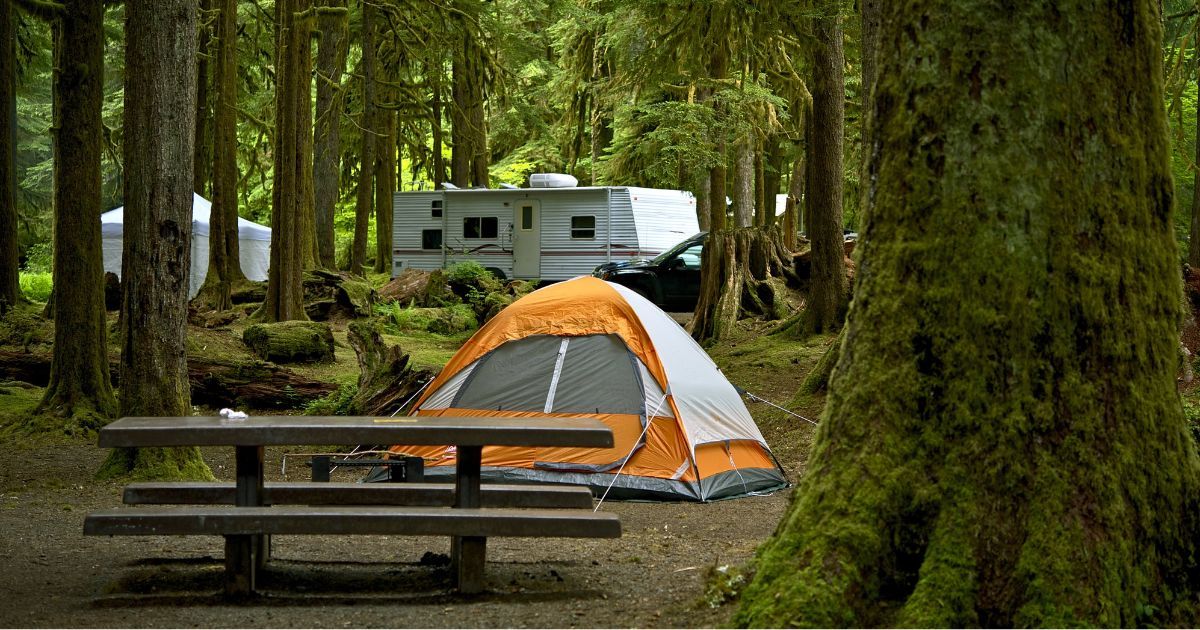
Now that we've covered the basics of both tent and RV camping, how do you decide which one is right for you?
Well, it really boils down to two main factors: personal preference and camping experience.
Personal Preference
Some people love the simplicity and rawness of tent camping, while others prefer the comfort and convenience of an RV. It's all about what makes you feel most at ease and fulfilled.
Do you want to wake up with the sunrise and go to sleep with the stars? Or do you prefer a comfortable bed and a cup of coffee from your own kitchen in the morning?
Assessing Your Camping Goals and Priorities
Think about what you want out of your camping trip. If you're looking for a back-to-basics retreat, tent camping might be your best bet.
But if you're after a comfortable outdoor getaway without sacrificing too many home comforts, RV camping could be the way to go.
Camping Experience and Skill Level
If you're new to camping, an RV might be a more comfortable introduction to the great outdoors. There's less setup involved and more creature comforts.
On the other hand, tent camping can be a fantastic adventure for those willing to embrace the learning curve.
Learning Curve for Each Camping Style
Both styles of camping come with their own set of skills to master.
Tent camping requires you to learn how to pitch a tent, start a fire, and cook camp-style meals.
RV camping involves learning how to drive and maintain the vehicle and camper, managing power and water systems, finding an RV park with all the amenities you want, and navigating campgrounds.
So, whether you choose to zip up in a tent or lock up in an RV, there's an adventure out there waiting for you.
Camping Destinations: National Parks and Beyond
Choosing your camping style is just the first step. Now, let's talk about where to go.
Whether you're in an RV or a tent, national parks offer some of the most stunning landscapes and diverse ecosystems in the world.
RV Camping in National Parks
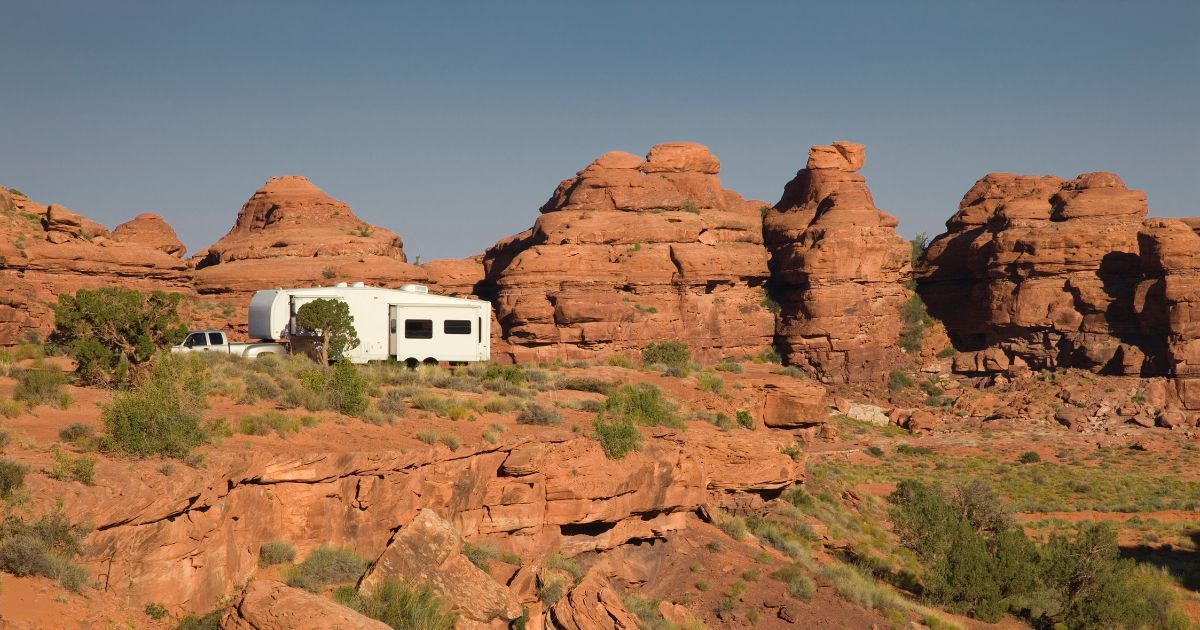
Accessibility and RV Hookups
National parks are generally well-equipped for RVs, with many offering full hookups (electricity, water, and sewage) and others providing partial hookups. This means you can enjoy the great outdoors without giving up all the comforts of home.
RV-Friendly National Parks
Some national parks are particularly RV-friendly. For instance, Yellowstone National Park has several campgrounds with RV sites, and it's a fantastic place to spot wildlife and marvel at geysers and hot springs. Always check the specific RV length restrictions of each park, as they can vary.
Reservations and Campsite Availability
The popularity of RV camping means that sites can fill up quickly, especially during peak season. Most national parks allow you to reserve your spot in advance, which is highly recommended. Remember, the early bird gets the worm – or in this case, the best campsite!
Tent Camping in National Parks
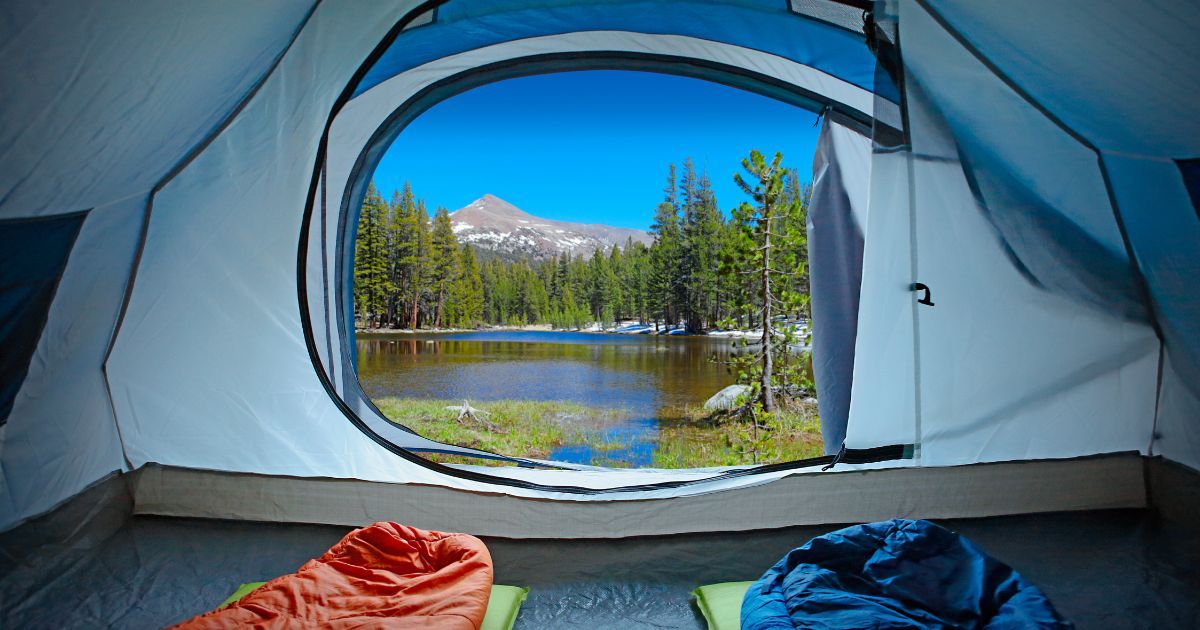
Tent Sites and Backcountry Camping
Tent campers also have plenty of options in national parks. You can choose from established campgrounds with amenities like picnic tables and restrooms, or for the more adventurous, backcountry camping offers a truly immersive nature experience.
Permit Requirements and Regulations
Backcountry camping often requires a permit, so be sure to check the regulations of the park you're visiting. And remember, "Leave No Trace" principles apply – whatever you bring in, make sure you take out.
Road Tripping: RVs vs. Tent Camping
Whether you're heading out for a weekend getaway or embarking on a cross-country adventure, both RVs and tents have their unique advantages.
Long-Distance Travel
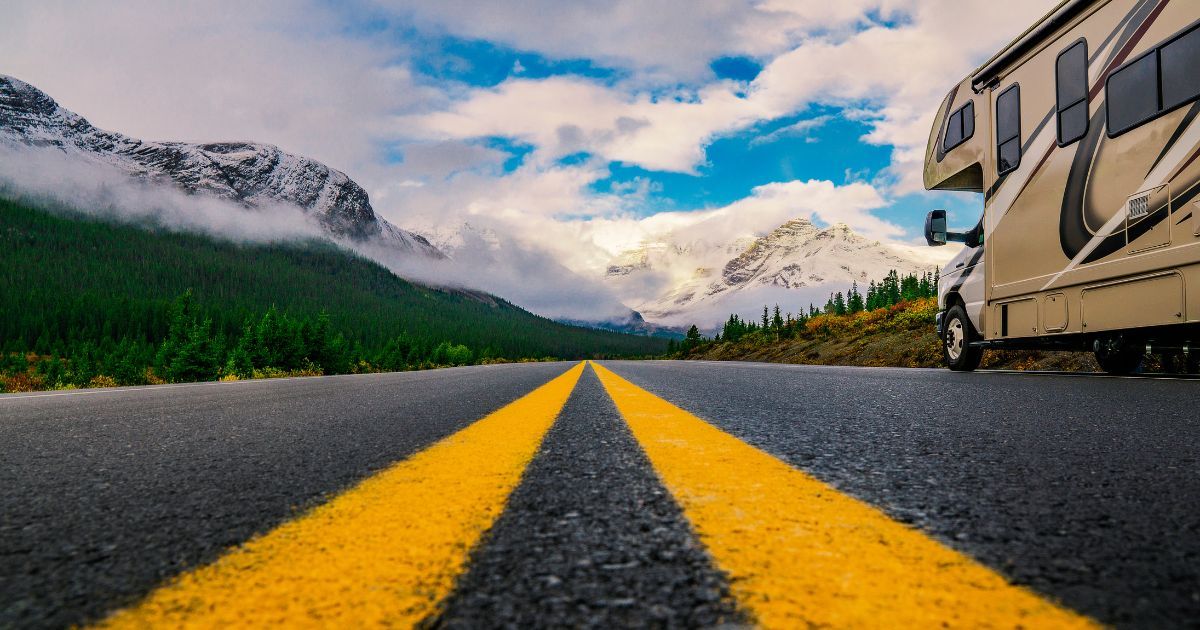
RV Road Trips and Comfort
For long-distance travel, an RV is hard to beat. You have the freedom of the open road combined with the comforts of home. Plus, your travel schedule is entirely up to you – if you see a picturesque spot along the way, you can simply pull over and set up camp.
It also provides the assurance of a cozy bed for a good night's sleep. Whenever needed, you can conveniently park in a rest area and enjoy a comfortable stay.
Road Trip Essentials for Tent Campers
Tent camping on a road trip can be just as exciting, but it does require a bit more planning. You'll need to pack your car with all the necessary gear, food, and water, and plan your route around available campsites. There have been times where I couldn't make it to a campsite and ended up sleeping in the car at a rest area, but it's all part of the adventure.
Exploring Off the Beaten Path
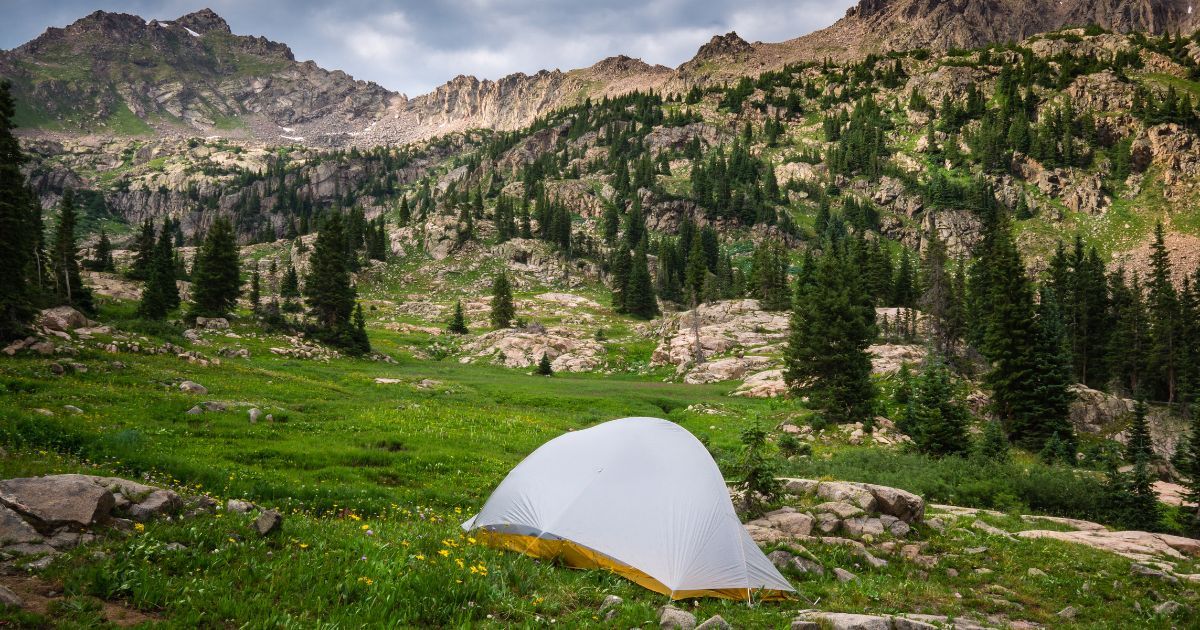
RV Limitations on Remote Routes
While RVs offer comfort and convenience, they do have limitations when it comes to exploring off-the-beaten-path areas. Some remote spots may be inaccessible due to rough terrain or narrow roads.
Adventure Opportunities for Tent Campers
This is where tent camping shines. With just a backpack, you can hike into the wilderness and set up camp in places RVs can't reach. It's an unparalleled way to connect with nature and find solitude in the great outdoors.
So, whether you're planning a leisurely road trip or a rugged wilderness adventure, choosing between an RV or a tent can shape your journey in very different ways.
Up next, we'll discuss the cost considerations and learning curve involved in both styles of camping.
Renting vs Owning: An Overview for New Campers
As you start planning your camping adventure, one of the first questions you might ask is whether it's better to rent or own your camping equipment.
Let's break down the costs and flexibility of both options.
Cost Comparison
Budgeting for RV Rental
Renting an RV can be a cost-effective way to try out this style of camping without committing to the purchase price of a new or used RV.
- Rental costs can vary widely based on the size and type of the RV, as well as the season and duration of your trip.
- Don't forget to factor in the costs of fuel, campsite fees, and any additional mileage charges.
Expenses Associated with Tent Camping
Tent camping is generally less expensive than RV camping.
- You'll need to invest in a good quality tent, sleeping bags, a camping stove, and other basic gear.
- However, these upfront costs often pay for themselves over time, especially if you camp frequently.
- Campsite fees for tent campers are usually lower than for RVs.
Flexibility and Ownership
Owning a Camper vs. Renting an RV
Owning a camper gives you the freedom to hit the road whenever the mood strikes. It's always ready to go, packed with your personal gear.
However, ownership also comes with responsibilities like maintenance, storage, and insurance. Renting, on the other hand, allows you to try different types of RVs and eliminates the concerns of long-term upkeep.
Camping Gear and Equipment
Whether you're in a tent or an RV, having the right gear can make all the difference in your camping experience.
Essentials for Tent Camping
Tents, Sleeping Gear, and Cooking Equipment
Your tent will be your home away from home, so choose one that fits your needs in terms of size, weather resistance, and ease of setup.
A comfortable sleeping bag, sleeping pad, or air mattress is also crucial for a good night's sleep.
As for cooking, a reliable camping stove, a good cooler, and cookware are must-haves for tent camping trips.
Packing Tips and Checklist
Make a checklist to ensure you don't forget any essentials. Pack light, but be sure to include items like a first aid kit, a flashlight, and plenty of food and water. Remember, it's all about balancing comfort and practicality.
Must-Have Accessories for RV Camping
RV-Specific Gear
When it comes to RV camping, you'll need some additional gear like water and electric hookups, leveling blocks, and potentially a portable generator.
A good-quality sewer hose is also essential for those sites with full hookups. This list can be rather extensive depending on the RV of choice.
Organization and Safety Items
To keep your RV tidy, consider storage solutions like collapsible containers. For safety, make sure you have a fire extinguisher, carbon monoxide detector, and a basic tool kit for any minor repairs.
Bottom Line
Whether you're zipping up a tent or parking an RV, camping offers an incredible way to connect with the great outdoors.
So, what kind of camper are you a tent camper or an RV camper?
This will depend on your personal preferences, budget, and desired comfort level. What's most important is that you find joy in the journey and create lasting memories along the way.
Additional Resources and Tips
To help you get started on your camping adventure, here are a few useful resources:
- Campsite reservation websites like ReserveAmerica and Recreation.gov
- Camping gear retailers like REI and Cabela's
- RV rental platforms like Outdoorsy and RVshare
And finally, remember to always respect your surroundings and fellow campers.
Follow campground rules, keep noise levels down, and adhere to Leave No Trace principles. Happy camping!
Before You Go...

